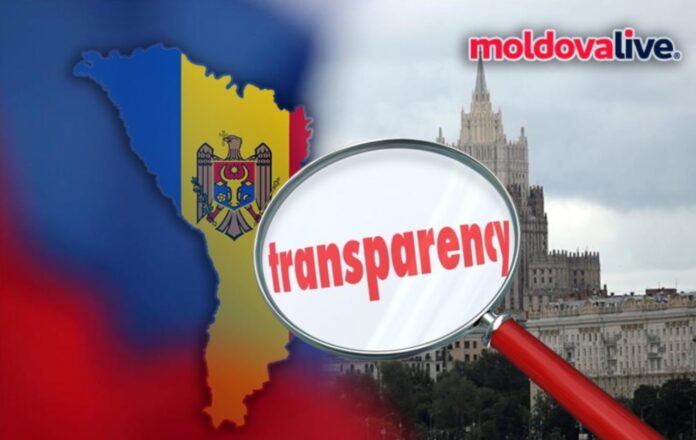The Intelligence and Security Service (ISS) has published a comprehensive report on the Russian Federation’s attempts to interfere in Moldova’s internal affairs, aiming to destabilize the country and influence democratic processes. According to the document, Russia has implemented a complex influence strategy using hybrid methods such as illegal financing, propaganda, sabotage, and manipulation of electoral processes.
The report reveals the existence of an operational center in Moscow, coordinated by individuals affiliated with the “Shor” group and supported by Russian authorities. This center aims to undermine the referendum on European Union accession and destabilize the 2024 presidential elections. The group has used political structures like the “Victory Bloc” to influence voters and promote pro-Kremlin agendas.
“In the first quarter of 2024, an operational ‘command/coordinating’ center was established in Moscow under the protection and control of Russian authorities (including the FSB). This center is coordinated by Ilan Shor, a Moldovan citizen sentenced to 15 years in prison in Moldova, currently wanted internationally for money laundering and attempts to destabilize Moldova, and now residing in Moscow,” the ISS report states.
The ISS highlights the use of propaganda and disinformation through social media, media platforms, and online groups, as well as the training of young Moldovans in camps in Russia, where they were prepared to organize violent protests. The report also points out the economic and energy pressures exerted by Russia, including those on the Transnistrian region, exploiting Moldova’s vulnerabilities in the energy sector.
FOR THE MOST IMPORTANT NEWS, FOLLOW US ON TWITTER!
“A new tactical element applied by cyber actors affiliated with Russian interests involved creating websites that closely mimic governmental and non-governmental web resources (e.g., mec-gov.md, moldova-mediu.md, eupm-moldova.md, moldovasocial.com, parliament-moldova.com). These sites spread disinformation (narratives undermining European values and inducing panic in society) through mass email distribution,” the report specifies.
The document also mentions Russian support for projects like “EVRAZIA,” which facilitates political party financing, promotes Russian propaganda, and attracts young Moldovans through various cultural initiatives. Additionally, it underscores the growing number of cyberattacks targeting Moldova’s digital electoral infrastructure, aiming to disrupt access to government platforms and spread misinformation among the population.
“Throughout 2024, the organized criminal group (Shor) was actively identifying covert mechanisms to funnel funds into Moldova. Documented methods include organized cash transportation from Russia to Moldova by couriers and associates on air routes. This method is under investigation by the Police, Prosecutor’s Office, and Customs Service.
Money transfers from Russia were carried out via accounts at ‘PROMSVYAZBANK’ (subject to international sanctions), using the Russian payment system MIR, with funds transferred through payment platforms in Uzbekistan; P2P transfers through payment platforms and banks in Central Asia; and remittance systems like ‘Zolotaya Korona.’ Since the launch of the ‘EVRAZIA’ platform in Moscow, increased attention has been directed at Moldovan regions led by individuals affiliated with Ilan Shor – UTA Gagauzia, Taraclia, and Orhei. Administrations in these areas signed trilateral contracts with ‘EVRAZIA’ and ‘PROMSVYAZBANK,’ effectively camouflaging illegal financing and electoral corruption,” the ISS report details.
The ISS has implemented complex measures to counter these risks, including informing authorities and initiating legal proceedings against individuals and organizations involved. The report emphasizes the importance of strengthening national security and accelerating European integration while underscoring the urgency of bolstering Moldova’s resilience to such threats.


